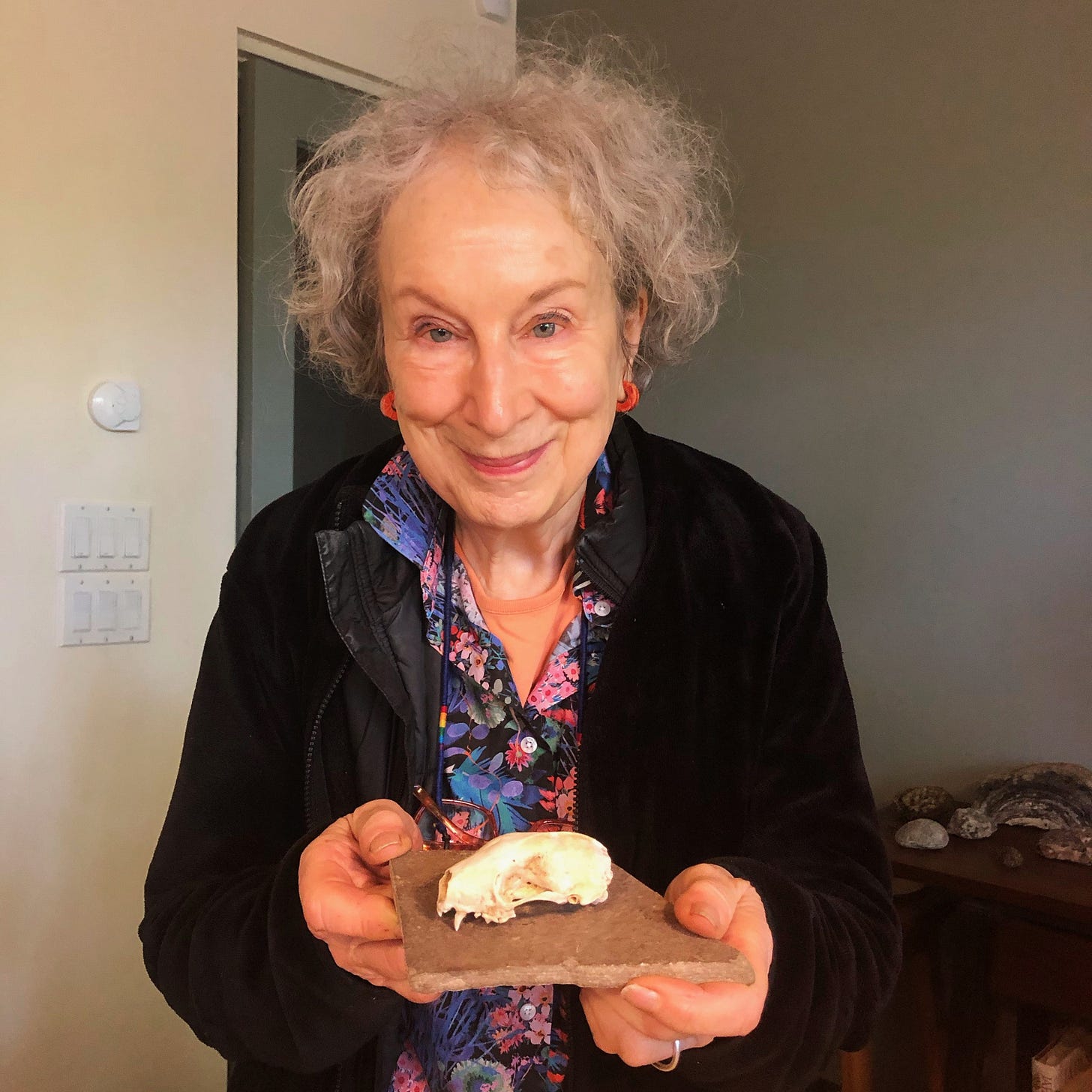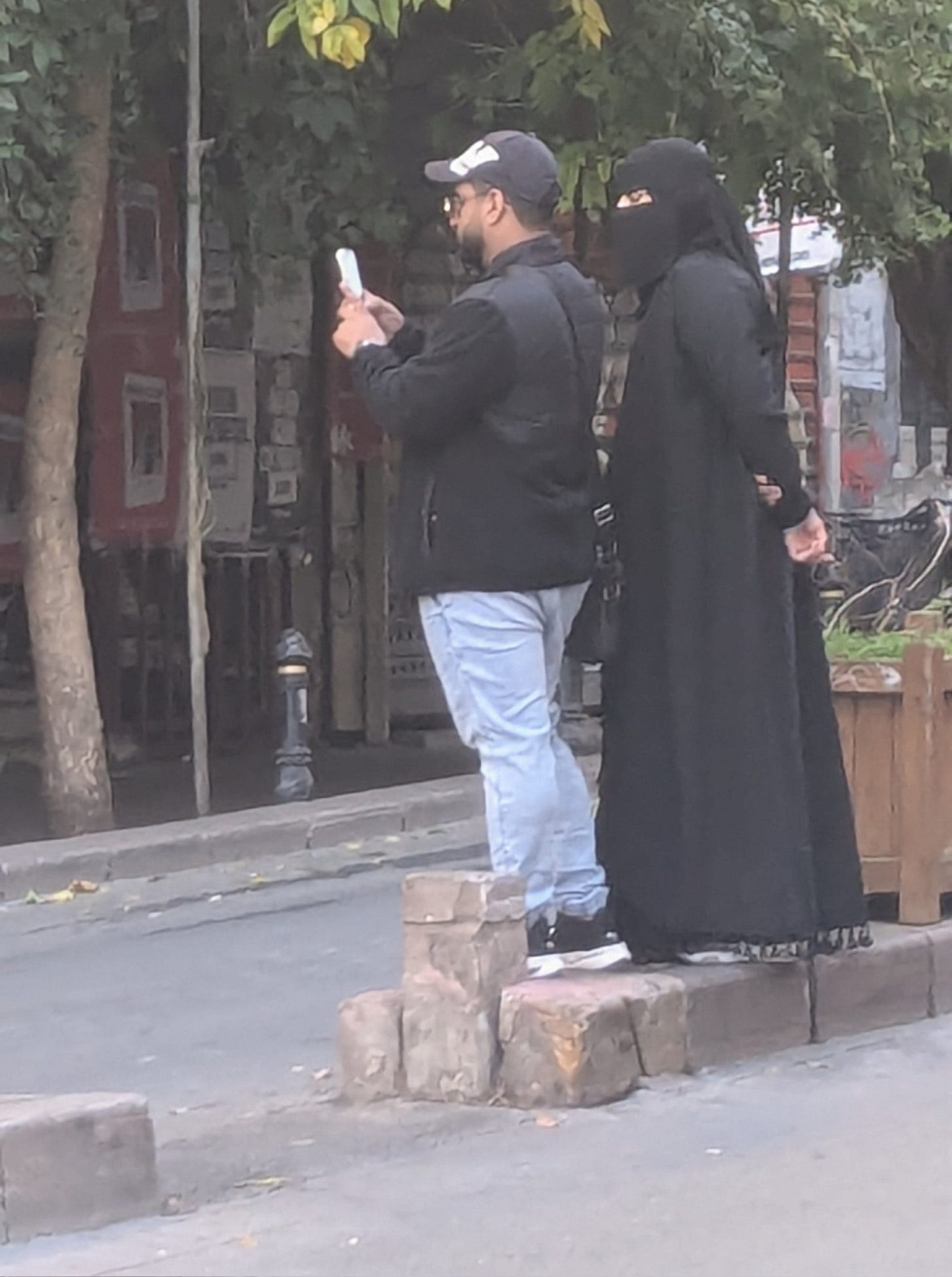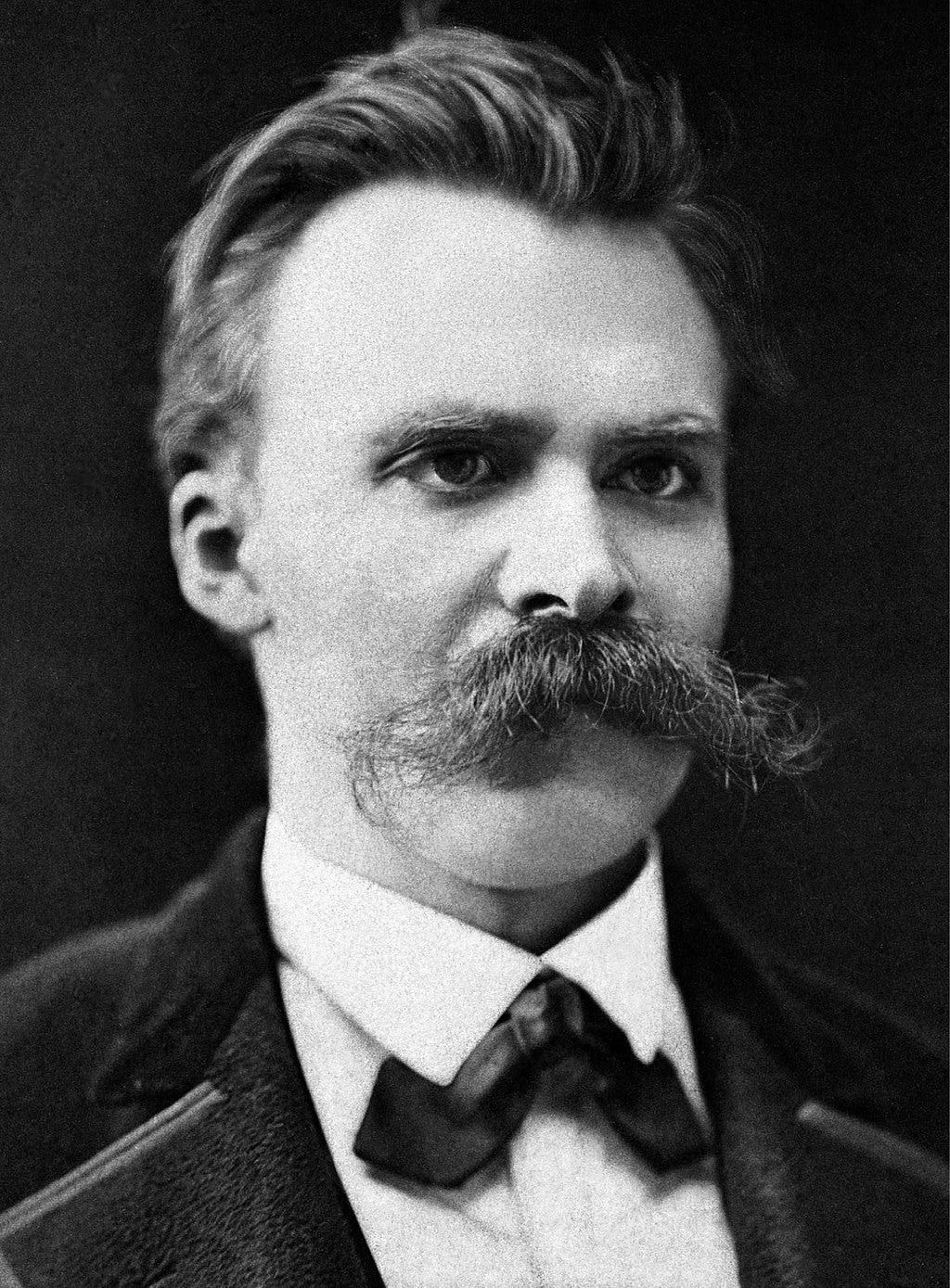Margaret Atwood and desire in Mexico City
Beale sounding like he's on Peyote
The other night a quote from Margaret Atwood popped up on my Instagram feed. "The desire to be loved is the last illusion. Give it up and you will be free." It could've come straight out of the book I just read, don Miguel Ruiz’s The Mastery of Love which has helped me to address my “fear-based beliefs and assumptions that undermine love and lead to suffering and drama,” and which is pretty good, despite, regrettably, veering into Eckart Tolle territory towards the end.
Anyhow, Margaret's words brought up two things for me: Burkas, and the thought that the desire to be desired, not loved, is in fact the last illusion. When you're loved, you still want to be desired.
Given that Recep Tayyip Erdogan, with his Islamification putsch, is sending Turkey back to the stone ages, I figured that Istanbul would be one big burka bazaar. Not so. While they're much more common in the outlying suburbs and the rest of the country, here, in the centre of town at least, where most of the tourists hang out, you barely see any at all. When you do, the woman is usually accompanied by a very chic (sheik?) looking guy
decked out in expensive sneakers and trendy brand-name duds and shades, exactly the kind of look they forbid their wives to rock. Women are denied a primary joy: making themselves look attractive. The men in this religion are too chicken-shit and untrusting to allow their better halfs to look desirable. They're afraid of women's power, so, using bullshit religious codes, they force them to look like armed police vehicles.
Or, if Shutterstock does like me using this photo and decides to block it: let’s go with this:
spotted today in Mexico City.
Not exactly desirable.
Many women of faith are apparently happy with this. But I bet more than half of them aren't down for it. Then again, speaking of perspective, I'll admit I'm with Nietzsche
who believed that
"Faith means not wanting to know what is true."
"You should not be afraid of someone who has a library and reads many books; you should fear someone who has only one book; and he considers it sacred, but he has never read it."
and, given that we’re challenging Margaret’s contention:
“Ultimately, it is the desire, not the desired, that we love.”
The desire to be desired can of course be interpreted in many ways. As a need for attention, admiration, recognition, immortality even; proof we were here, that we existed; that we are important; significant. Which brings up Dr. Johnson's famed belief that only blockheads write for nothing.
I struggle with this.
I don't have to share my writing. Writing is how I think, how I make sense of the world and myself, and what I read, but why share it? Because there’s nothing to lose I suppose, in a free society at least - one, incidentally, that, judging from voter turn out, most people take for granted (at their peril).
While I'm very grateful to those who've paid for subscriptions here, the total sum barely buys a street tortilla in Mexico City. So if it's not for the money, what then? What compels me to share my experiences, thoughts and ideas with you? Ego? The presumption that what I have to say is interesting?
Perhaps. Just as with the experience of great art, there does seem to be an urge to share that which intrigues, which thrills, impresses, fascinates, elevates; which occupies and captivates one’s mind. Maybe the hope is that in sharing, others will get the same thrill, the same good feeling. That some worthwhile thought, or action, might result, might in some way be useful, or entertaining.
Why do you think social media has achieved such staggering success? Simple: it exploits the human need to connect, the urge to be desired, to escape the scary reality that we're alone, the fact that we enter and exit the world on our own; that we need each other.
Basically, what Facebook and friends have is a mailing list that includes a comprehensive, accurate record of everyone's likes and dislikes which they sell access to, enabling the companies that buy it to in turn sell their shit to people who, also in turn, think that by buying it they'll be more desirable. Perfect. Way more accurate consumer profiles than ever traditional media ( TV, Radio, Newpapers, Magazines) could hope to deliver. Hence the migration of revenue: it's grass has been cut.
Anyhow.
What an extraordinary, bewildering, wonderous, frightful, blissful, tragic experience life is. How are you experiencing it? What do you think it's all about? Why do you think we're here? Is this question even worth wasting the time to try to answer?
Tolstoy said it much better:
What is bad? What is good? What should one love, what hate? Why live, and what am I? What is life, what is death? What power rules over everything?" he asked himself. And there was no answer to any of these questions except one, which was not logical and was not at all an answer to these questions. This answer was: "You will die--and everything will end. You will die and learn everything--or stop asking.”
Increasingly, I've been thinking that I should conduct a series of interviews about how to live a good life. Why read books if not to answer this fundamental question.
For my money, life has to do with finding what sets your heather on fire, and learning everything you possibly can about it. Bringing the amateur's ecstatic mind to it. Satisfying the curiosity. Learning. Laughing. Enlightening yourself. Reading, and talking with smart people about what you've read, and yes, sharing your enthusiasm with others.
For me, over the years, it's been about books and the people responsible for writing, producing, selling, reading, collecting and studying them.
Pretty well everyone I've ever interviewed for The Bibio File podcast I admire. Maybe that's it. Wanting to praise people whose accomplishments you think deserve attention.
Altruism!
Whatever it is, I just know that sometimes I feel like a blockhead.
***
From Mexico City, here's wishing you and yours Feliz Navidad,
and a very happy, fulfilling 2025.
Stay tuned for final thoughts on Istanbul, and preliminary comparisons with Mexico City.
(Note: no more peyote, and no more on desire, I promise).











